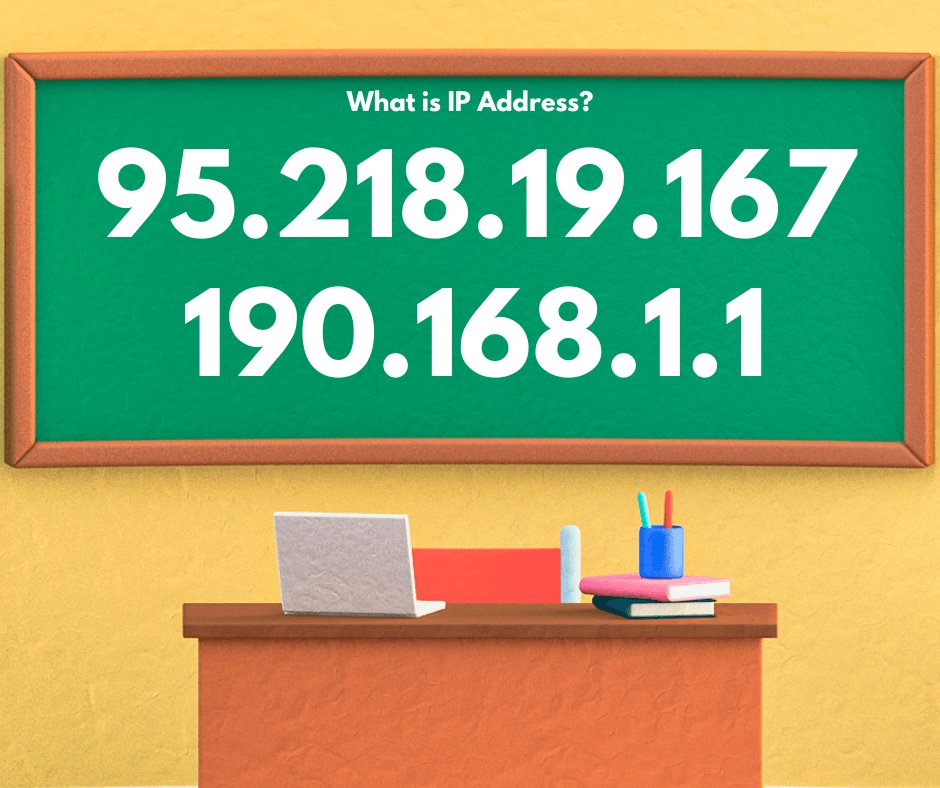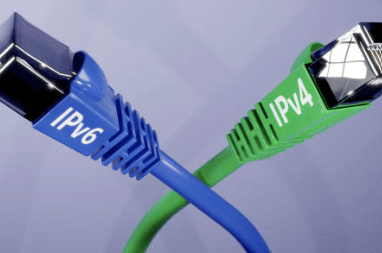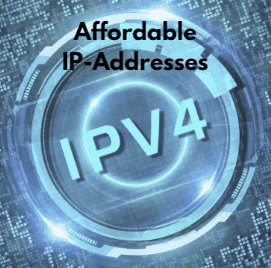Understanding IP Addresses in 2024
What are IP addresses?
IP stands for Internet Protocol. A set of regulations dictating the structure of data transmission over the Internet or a local network is essentially known as a protocol. IP addresses serve as unique identifiers, facilitating the exchange of information among devices on a network by incorporating location details and enabling devices to be accessible for communication.
Table of Contents
The Basics of IP addresses
In layman’s terms, an IP address is like a digital home address for your device on the internet. It allows devices to communicate with each other across the vast web. Just like your home address, an IP address is unique, ensuring that data reaches its intended destination accurately. Now let’s take a look at the history of IP addresses.
Evolution of IP addresses
Back in the early days, most devices used IPv4 addresses, a system that is now running out of available addresses. To address this scarcity, IPv6 has emerged, providing a vast pool of unique addresses to accommodate the growing number of connected devices. I.lease recognizes the challenges associated with IPv4 depletion and offers innovative solutions to navigate this transition seamlessly.
Unique IPv4 address Solution
In the face of IPv4 exhaustion, I.lease stands out as a pioneer in providing IP leasing services. This unique solution allows businesses to overcome the challenges associated with buying addresses in the market. With a straightforward process, transparent costs, and professional support, I.lease simplifies the acquisition of IP addresses, making it a breeze for companies to meet their business and product development needs.
IP leasing process
The IP leasing process is designed with simplicity. Just imagine it as renting a house. You pick the address you need, and it’s assigned to you from the IP pool. This straightforward process eliminates the complexities associated with purchasing addresses on the market. No need to worry about geographical restrictions or usage limitations; I.Lease’s service is flexible and allows you to update settings and change locations at any time.
Clear costs and low expenses
One of the challenges businesses face in obtaining IP addresses is the unclear costs and the financial burden associated with the process. I.lease addresses this concern by providing a transparent cost structure that is easy to understand and bear. This ensures that businesses can plan their budgets effectively without any hidden surprises.
Tracking and technical support
While, I.lease goes beyond just providing IP addresses; it offers a full-service experience. Their team of IP experts provides continuous tracking and technical support. This means you can focus on your business while I.lease takes care of the technical aspects, ensuring a worry-free experience.
Flexibility for business needs
Additionally, the flexibility offered by I.lease’s IP leasing service is a game-changer for businesses. In a dynamic environment where adaptation is key, having the ability to quickly adjust your IP settings and change locations is invaluable. I.lease empowers businesses to meet their evolving needs efficiently and effectively.
Role of IP Addresses in SEO
In terms of search engine optimization, or SEO, search engines use IP addresses to identify the origin of web content, affecting search rankings. Having a unique and reliable IP address is, therefore, essential for optimizing online visibility. I.lease’s IP leasing service ensures that businesses have access to top-notch, SEO-friendly addresses to enhance their online presence.
In a nutshell, let’s take a quick look:
An IP address, or Internet Protocol address, is a numerical label assigned to each device connected to a computer network that uses the Internet Protocol for communication. It serves two main functions: host or network interface identification and location addressing.
There are two types of IP addresses: IPv4 (Internet Protocol version 4) and IPv6 (Internet Protocol version 6). IPv4 addresses are composed of four sets of numbers separated by dots (e.g., 192.168.0.1), while IPv6 addresses are longer and use hexadecimal notation (e.g., 2001:0db8:85a3:0000:0000:8a2e:0370:7334).
IP addresses are crucial for the routing of data packets across the Internet, enabling devices to send and receive information in a networked environment. They are assigned to devices either dynamically through DHCP (Dynamic Host Configuration Protocol) or statically by manual configuration.
Future of IP Addresses
As we look ahead in 2024 and beyond, the importance of IP addresses will only continue to grow. The seamless integration of devices, the rise of the Internet of Things (IoT), and the constant evolution of digital technologies underscore the need for a reliable and scalable IP address solution.
Related Posts
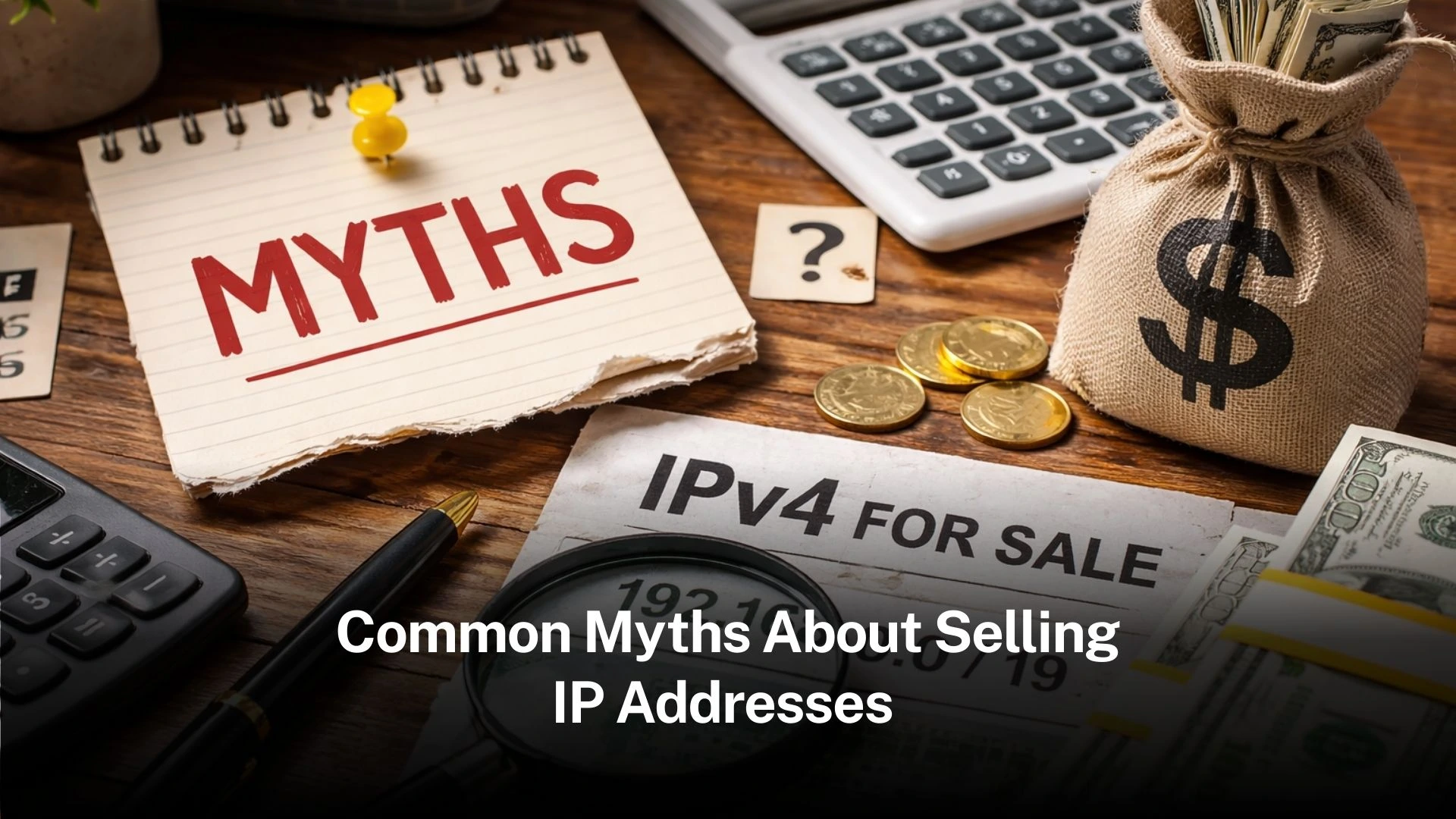
Common Myths About Selling IP Addresses
The IPv4 secondary market is often shrouded in mystery, leading many organizations to sit on valuable digital assets because they fear the perceived complexity or legal “gray areas.” As IPv4 exhaustion becomes a permanent reality, the value of these addresses has skyrocketed, yet misconceptions continue to stall potential transactions. At i.lease, powered by the real-world expertise of LARUS, we’ve seen how these myths prevent companies from unlocking significant capital.Read more Related Posts Common Myths About Selling IP Addresses The IPv4 secondary market is often shrouded in mystery, leading many organizations to sit on valuable digital assets because they Read more How to buy IPv4 addresses through a certified IP broker Buying IPv4 space requires policy compliance, verified need, and registry approval, making certified IP brokers essential guides through complex global Read more What happens when IP resources are mismanaged Poor IP resource management can lead to outages, security breaches, blacklisting, legal exposure and reputational damage across networks and business Read more .related-post {} .related-post .post-list { text-align: left; } .related-post .post-list .item { margin: 5px; padding: 10px; } .related-post .headline { font-size: 18px !important; color: #999999 !important; } .related-post .post-list .item .post_thumb { max-height: 220px; margin: 10px 0px; padding: 0px; display: block; } .related-post .post-list .item .post_title { font-size: 16px; color: #3f3f3f; margin: 10px 0px; padding: 0px; display: block; text-decoration: none; } .related-post .post-list .item .post_excerpt { font-size: 13px; color: #3f3f3f; margin: 10px 0px; padding: 0px; display: block; text-decoration: none; } @media only screen and (min-width: 1024px) { .related-post .post-list .item { width: 30%; } } @media only screen and (min-width: 768px) and (max-width: 1023px) { .related-post .post-list .item { width: 90%; } } @media only screen and (min-width: 0px) and (max-width: 767px) { .related-post .post-list .item { width: 90%; } }
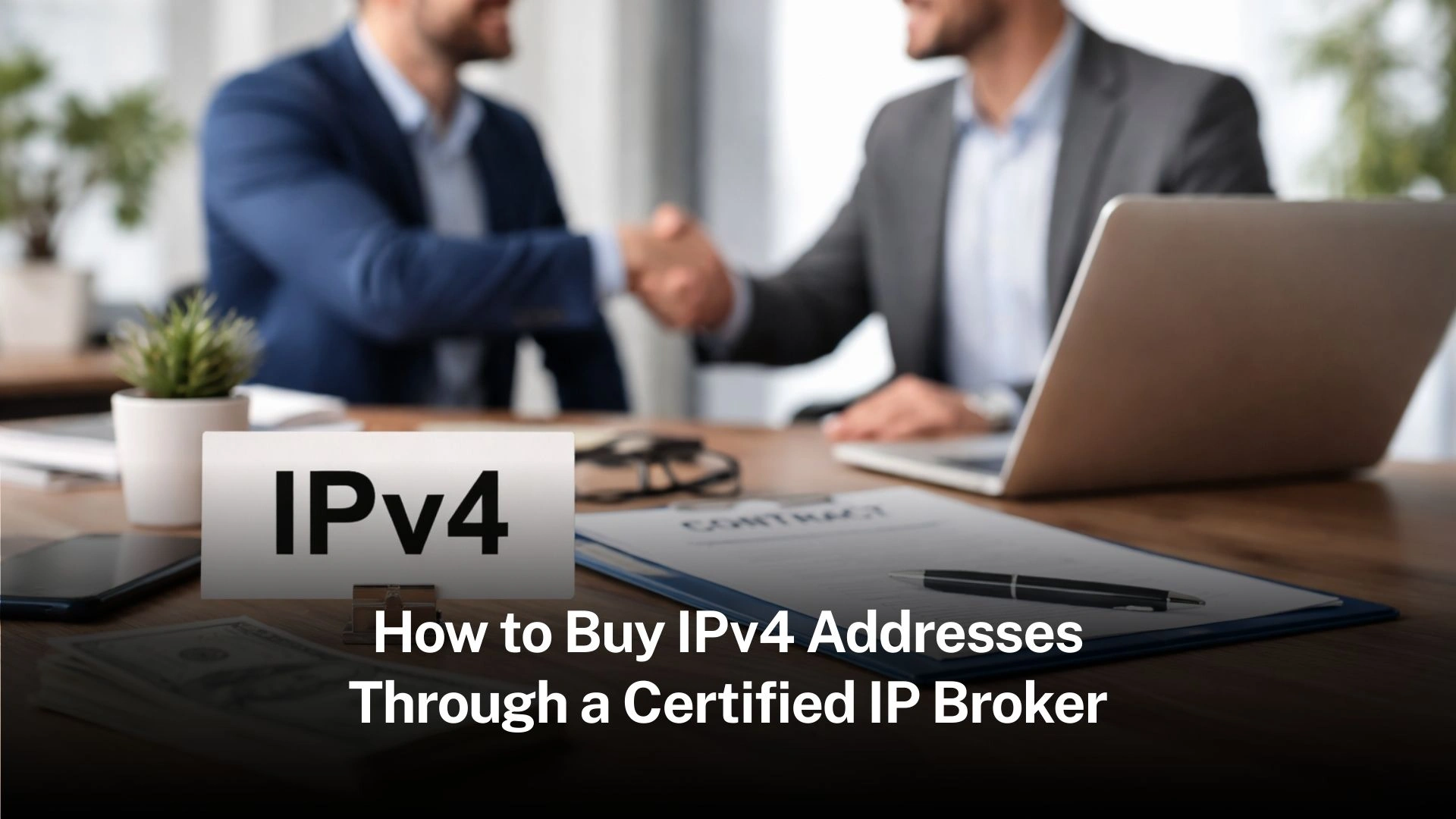
How to buy IPv4 addresses through a certified IP broker
Buying IPv4 space requires policy compliance, verified need, and registry approval, making certified IP brokers essential guides through complex global transfers. IPv4 transactions are regulated transfers, not simple purchases — registries must approve documentation, justification and registration changes. Certified brokers reduce risk and delay by aligning buyers with registry policy, routing legitimacy and cross-region requirements. Why companies still need to buy IPv4 addresses The global supply of IPv4 addressesRead more Related Posts Common Myths About Selling IP Addresses The IPv4 secondary market is often shrouded in mystery, leading many organizations to sit on valuable digital assets because they Read more How to buy IPv4 addresses through a certified IP broker Buying IPv4 space requires policy compliance, verified need, and registry approval, making certified IP brokers essential guides through complex global Read more What happens when IP resources are mismanaged Poor IP resource management can lead to outages, security breaches, blacklisting, legal exposure and reputational damage across networks and business Read more .related-post {} .related-post .post-list { text-align: left; } .related-post .post-list .item { margin: 5px; padding: 10px; } .related-post .headline { font-size: 18px !important; color: #999999 !important; } .related-post .post-list .item .post_thumb { max-height: 220px; margin: 10px 0px; padding: 0px; display: block; } .related-post .post-list .item .post_title { font-size: 16px; color: #3f3f3f; margin: 10px 0px; padding: 0px; display: block; text-decoration: none; } .related-post .post-list .item .post_excerpt { font-size: 13px; color: #3f3f3f; margin: 10px 0px; padding: 0px; display: block; text-decoration: none; } @media only screen and (min-width: 1024px) { .related-post .post-list .item { width: 30%; } } @media only screen and (min-width: 768px) and (max-width: 1023px) { .related-post .post-list .item { width: 90%; } } @media only screen and (min-width: 0px) and (max-width: 767px) { .related-post .post-list .item { width: 90%; } }
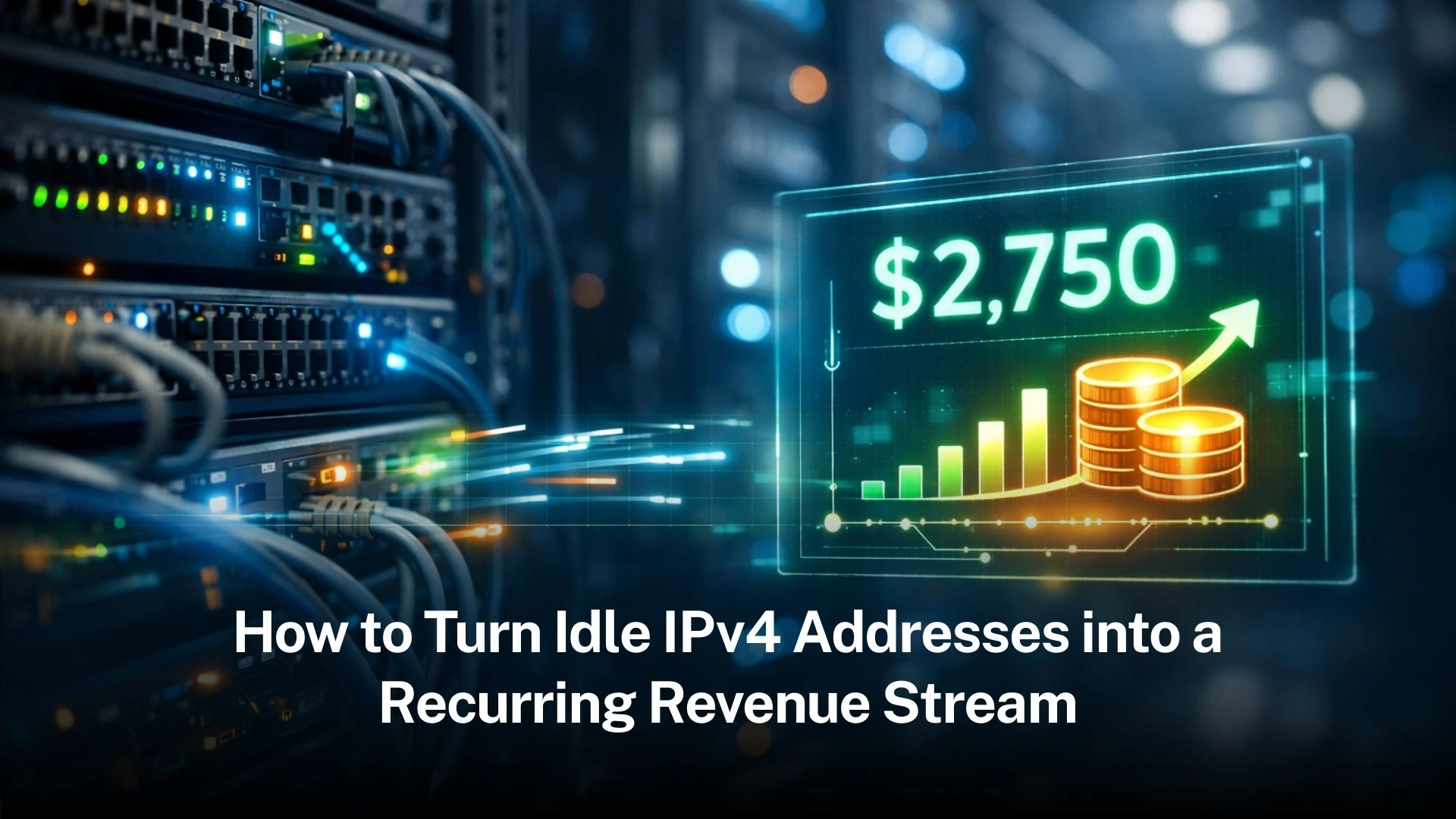
How to turn idle IPv4 addresses into a recurring revenue stream with iLease
Unlock the hidden value of unused IPv4 addresses with iLease, turning dormant digital infrastructure into a recurring revenue stream while navigating market demand, compliance and risk. Leasing idle IPv4 blocks can generate steady, long-term income without relinquishing ownership. Platforms like i.lease global IPv4 marketplace make it easier to monetise addresses and manage reputation and compliance. why IPv4 addresses still matter Despite the long-anticipated exhaustion of the IPv4 address space — aRead more Related Posts Common Myths About Selling IP Addresses The IPv4 secondary market is often shrouded in mystery, leading many organizations to sit on valuable digital assets because they Read more How to buy IPv4 addresses through a certified IP broker Buying IPv4 space requires policy compliance, verified need, and registry approval, making certified IP brokers essential guides through complex global Read more What happens when IP resources are mismanaged Poor IP resource management can lead to outages, security breaches, blacklisting, legal exposure and reputational damage across networks and business Read more .related-post {} .related-post .post-list { text-align: left; } .related-post .post-list .item { margin: 5px; padding: 10px; } .related-post .headline { font-size: 18px !important; color: #999999 !important; } .related-post .post-list .item .post_thumb { max-height: 220px; margin: 10px 0px; padding: 0px; display: block; } .related-post .post-list .item .post_title { font-size: 16px; color: #3f3f3f; margin: 10px 0px; padding: 0px; display: block; text-decoration: none; } .related-post .post-list .item .post_excerpt { font-size: 13px; color: #3f3f3f; margin: 10px 0px; padding: 0px; display: block; text-decoration: none; } @media only screen and (min-width: 1024px) { .related-post .post-list .item { width: 30%; } } @media only screen and (min-width: 768px) and (max-width: 1023px) { .related-post .post-list .item { width: 90%; } } @media only screen and (min-width: 0px) and (max-width: 767px) { .related-post .post-list .item { width: 90%; } }
